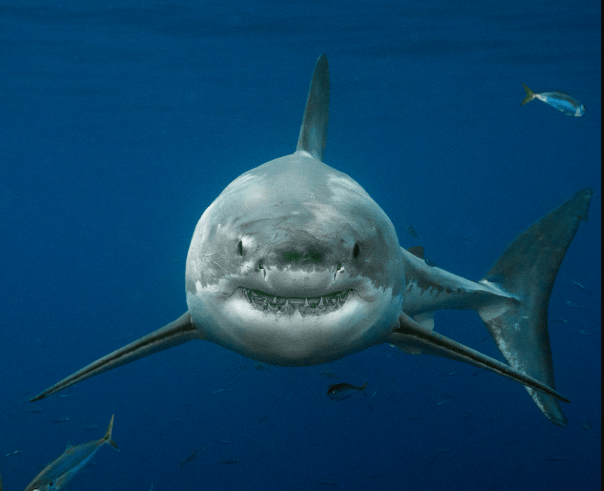Marine researchers are intensifying efforts to determine if the elusive great white shark inhabits UK and Irish waters, a mystery that has fascinated scientists and the public for decades.
The potential discovery of a great white shark in the UK and Ireland could reshape the region’s marine ecology understanding and spark a new wave of oceanographic research across Europe.
Scientists on the Hunt for First Confirmed Great White in UK and Irish Seas
A team of international scientists has launched a pioneering expedition to find the first-ever confirmed great white shark in the waters off the coasts of Ireland and the United Kingdom.
Led by US-based ocean research non-profit Ocearch, the mission aims to collect scientific data and potentially identify great whites in the Southwest coast of Ireland, a region believed to offer the ideal conditions for the apex predators.
“It would be the shark heard around the world,” Chris Fischer, founder of Ocearch, previously told Sky News.
“It would be the greatest thing we have ever achieved on the water. It would be the greatest gift we could give to any region of the world for their future, because that one shark would show people in this area and other research institutions where they can then potentially work on them and get more of the work going.”
Despite numerous anecdotal reports over the years, no great white shark has ever been officially documented in either British or Irish territorial waters. Many past sightings have either remained unverified or were later debunked as hoaxes.
Why Now? Conditions Point to a Strong Possibility
The latest expedition is driven by emerging evidence suggesting that the marine environment in this region could support great white shark populations. Cooler temperatures, abundant prey such as seals, and suitable seabed habitats make these waters a potentially attractive location for the species.
Dr Nick Payne, a shark expert and assistant professor at Trinity College Dublin’s School of Natural Sciences, is playing a leading role in the Ocearch initiative.
“I think given the conditions we have in Britain and Ireland in terms of the water temperatures and the kind of food that’s available, the kind of habitats that exist on the seabed here, I think there’s a really good chance – these are exactly the kind of conditions, this is like a Goldilocks environment for these animals,” he said.
He continued: “It’s not too hot, it’s not too cold, the food here is right, both here in Ireland and throughout different parts of the UK. This whole region is potentially a really comfortable place for them. It’s just a matter of trying to find out if they’re here.”
The Longstanding Mystery of Great Whites in Europe
The presence of great white sharks (Carcharodon carcharias) has long been confirmed in parts of the Mediterranean and along the Atlantic coast of mainland Europe. However, their apparent absence from the colder waters of the UK and Ireland has puzzled researchers.
- Unverified Sightings: Reports have surfaced sporadically since the 1970s, with eyewitness claims ranging from the Cornish coast to the west of Ireland.
- No Confirmed Evidence: Until now, no photographic, video, or biological data has substantiated these claims.
- Changing Ecosystems: Climate change and shifting oceanic currents may be altering the migratory patterns of marine predators, potentially drawing great whites further north.
What’s Next for the Ocearch Mission?
Ocearch scientists are conducting a multi-week voyage using advanced tracking equipment, satellite tagging tools, and remote-operated vehicles. Should they find and tag a great white shark in the region, it would be a landmark moment for marine biology in the North Atlantic.
The implications of a confirmed sighting are far-reaching—from expanding conservation efforts to raising public awareness about ocean health and biodiversity in UK and Irish waters.
As the mission unfolds, marine enthusiasts and scientists alike will be watching closely. Could this be the year that the long-speculated presence of the great white shark in British and Irish waters is finally proven?
Efforts to better understand and protect marine ecosystems in the UK are gaining momentum, with new developments such as ARC Marine’s habitat-enhancing project at Living Coasts paving the way for a more sustainable future beneath the waves.






